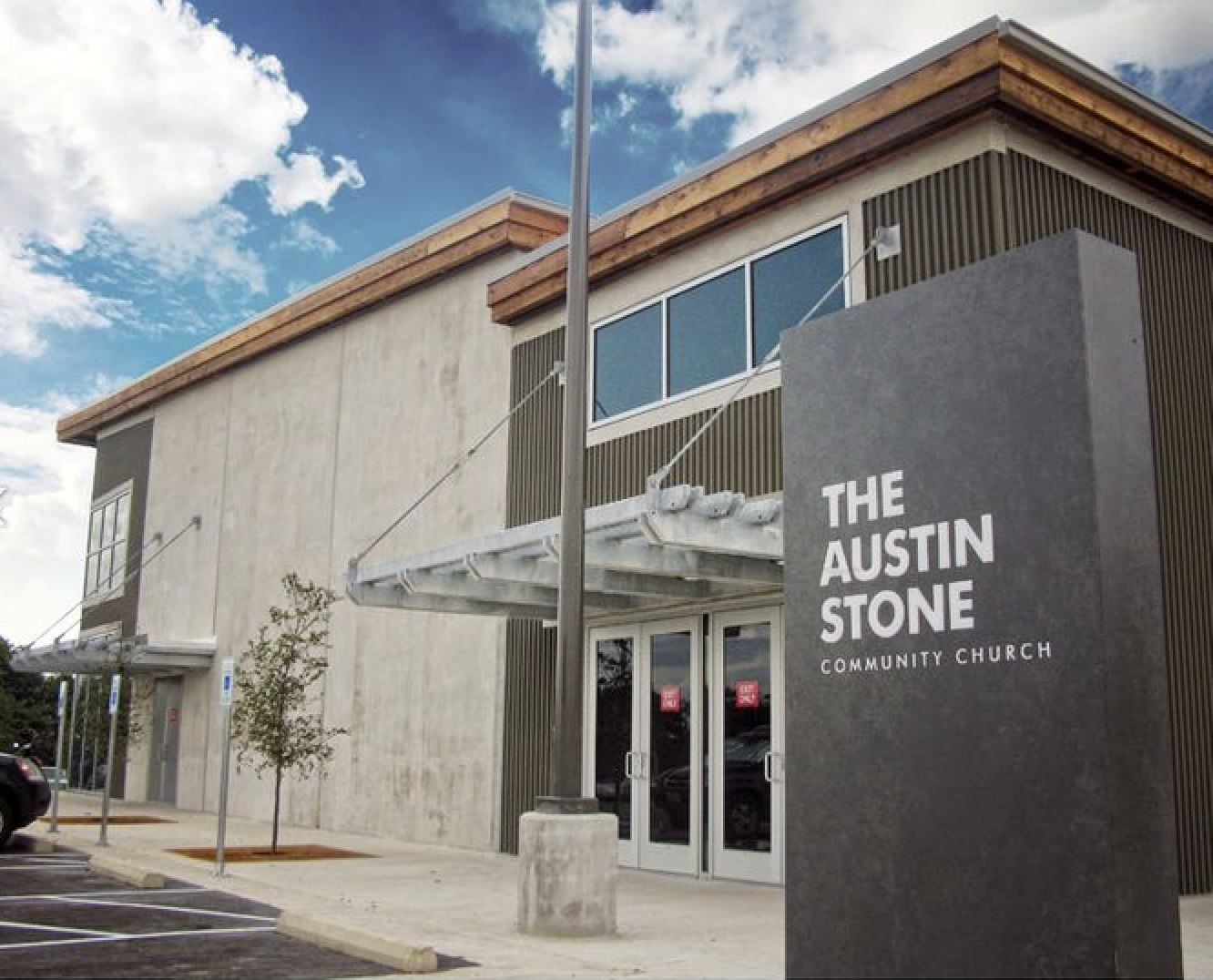God Doesn't Need Toxic Churches and Neither Do We
The Austin Stone isn't exceptional. God was just fine long before the Stone existed, and God will be just fine, I'd argue even better, without the Stone.

Last week, the Bodies Behind the Bus Podcast (BBTB) launched a series titled "Stories from the Austin Stone." If you aren't familiar with BBTB, they highlight the stories of religious abuse survivors.
They've covered stories from within various networks and denominations, including the Acts 29 Network, the Southern Baptist Convention (SBC), the Evangelical Free Church of America (EFCA), and many others. Many of their stories have hit close to home for me, but none more so than this series on the Austin Stone.
For those who aren't familiar with my background, I was part of The Austin Stone (also known as The Stone) from 2011 to 2020. I served in various capacities at the church, from being a church member to a resident, and in multiple pastoral and local mission roles. As someone who spent the better part of a decade at the church, I experienced firsthand how this church has been viewed as a 'golden child' and blueprint for American evangelical churches.
A theme I noticed within each episode is the church's belief in its exceptionalism. The Stone is a unicorn in that it's a predominantly white, affluent, conservative congregation that experienced exponential growth in the heart of a progressive city, Austin, TX. The growth the Stone experienced in the late 2000s occurred quickly, catapulting it to the forefront of American evangelicalism.
A boom in church attendance almost two decades ago has been leveraged to justify the necessity of the Stone's existence. This is as more and more stories come to light, highlighting a culture of abuse, narcissism, and toxicity at the hands of Stone leadership.
The Hubris of Exceptionalism
If you haven't already, I highly recommend listening to this series—the first episode, Intro to Stories from the Austin Stone. The episode does an exceptional job of sharing the history of the church, along with its level of influence in Reformed Baptist circles.
Based on my understanding, the rapid growth in the late 2000s and early 2010s is where the narrative of its exceptionalism originated. As a result, everything the Stone does is filtered through the lens of, 'look how fortunate you are to be a part of our super special church.' This line of reasoning is used as a motivator to encourage congregants to participate in more of the church's initiatives.
The fact that we were using the words 'hubris', 'exceptionalism', and 'church' in the same sentence is problematic in itself. What makes this worse in the context of the Stone is how they've weaponized this same exceptional narrative to exploit their workforce, cover up scandals, and justify a lack of financial transparency.
Exploit their Workforce
During B's Story, we hear about how B raised her salary to work for the Stone. When I became a resident, I also had to support raise my salary to work for the church. This is the case for anyone who works for the church as a resident.
Included in the salary that residents must raise to provide for their basic needs are fees paid to the church. The majority of residents live at or below the poverty level. Still, the financial sacrifice is viewed as justified because they get to be developed to serve in ministry as a career from one of "the best" churches.
The reality is that, out of the thousands of residents who have gone through the Stone's residency program, perhaps a few dozen have served in a ministry capacity for any length of time after their residency ended. When we tally up all the residents who have gone through a residency, we have thousands of laborers who have paid their employer to work their job. This model has earned the Stone hundreds of thousands, if not millions of dollars.
One of the biggest ironies is that the people who do the majority of the ministry work are often the least paid employees in the organization. Meanwhile, the most senior leaders, who are the most removed from day-to-day tasks in running the church, are the highest-paid workers. If you're on the 'executive elder' team, which is the highest level of leadership, you are guaranteed a six-figure salary.
How can the church justify this? They're special. They're exceptional, blessed by God. If you don't believe them, consider the size of the church. Church attendance is their validation of God's special anointing.
Cover-Up Scandal
I've written about the most prominent church scandals that have happened at the Stone extensively in these articles:
- Aaron Ivey - Another Case for Why Evangelicalism Needs to be Torn Down
- The Austin Stone and Worrisome Public Statement
- Churches in Public Schools: A Sanctuary or Safety Risk?
The TLDR of the scandals that have happened at the Stone is they're like John Gotti, the "Teflon Don," none of it sticks. Within the executive elder team (the highest level of leaders), there has been a mismanagement of donated funds, a cover-up of sexual assault against a minor, and sexual misconduct involving a minor.
Lack of Financial Transparency
As you'll hear about in future stories, there was well-known financial mismanagement by senior leadership, which was also known for years by multiple executive elders. The Stone also has what they call 'Partnership Covenants.' This document outlines a series of statements that every member of the church is expected to adhere to and renew annually.
During my time at the church, one of the top two questions every year from congregants is, 'Where can we see the salaries of the pastors and church staff?' Every year, as staff, we were given standard responses to share with congregants.
Once, I was part of a conversation where a staff member asked the Lead Pastor, Kevin Peck, directly how he navigates questions about the church's finances. Kevin's response was,
"I tell whoever asks to see our itemized budget and staff salaries, to show me their budget and salary first, and then I'll show them ours. That usually takes care of it."
The church exists because of each church member's tithes and offerings. Because of this, the congregation has a right to know where their money is going and how it is being spent.
Ben's story does a great job of highlighting other ways this exceptionalism rears its ugly head in the life of the church. I can't help but wonder how the 'exceptionalism' card can be played as a get-out-of-jail-free card time and time again.
Here's the thing: The Austin Stone isn't exceptional. God was just fine long before the Stone existed, and God will be just fine, I'd argue even better, without the Stone.
The more the truth comes to light about the abuse, narcissism, and toxic culture that the church exudes, the clearer it will become that the best thing it can do for God and its people is to no longer exist.




